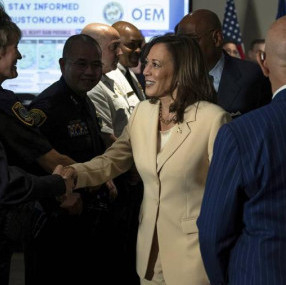The Russian Deputy Foreign Minister Grigory Karasin has recently visited Tiraspol. He expressed concern over the sluggish activity of the Joint Control Commission (JCC), which monitors the situation in the security zone on the Dniester. Aside from that, he talked the need to open a consulate in Russia, which could serve 180 thousand Russian citizens.
At the same time Andrey Deshchitsa, the Special Representative of the OSCE Chairperson-in-Office for conflicts, Minister of Foreign Affairs of Ukraine Leonid Kozhara, arrived in Chisinau. He also stressed that Kiev would insist on opening of a Ukrainian consulate in Transnistria to protect the Ukrainian citizens. According to various sources, about 100 thousand of them live in thr region.
It is not by accident that both Karasin, and Doschitsa visited Chisinau and Tiraspol right now: in mid-July, Vienna is to host the next round of negotiations on Transnistrian settlement in the 5+2 format (Moldova, Transnistria are parties, Russia, Ukraine, OSCE are mediators, the EU and the U.S. are observers).
A November summit of “Eastern Partnership” in Vilnius is even more important for Moldova, where it and the EU will announce the completion of negotiations on visa-free regime and initial an Association and Free Trade Agreement. Not only agreements with Moldova are to be concluded in Vilnius, but also with Ukraine, which is also engaged in Transnistria, as chairman of the OSCE. However, the negotiations may be thwarted because of the Transnistrian Moldovan Republic separated from Moldova.
In order to ensure that the talks with the EU are successfully completed, Moldova has to quickly resolve the conflict with Transnistria. Now, since May 1, six border and immigration posts have begun work on the border with the breakaway region, to scan the Transnistrians’ passports having no Moldovan citizenship, and register them. Moldova is associated with the EU without its eastern region, as Chisinau believes.
More than 180 thousand Russian citizens and almost 100 thousand Ukrainian live in Transnistria, and “from viewpoint of Moldova, all of them can be classified as foreigners,” Foreign Minister of the Republic, Nina Shtansky, explained.
On the ninth of July, Chisinau was visited by the EU High Representative for Foreign Affairs and Security Policy, Catherine Ashton. So that there shall be no failures, Brussels insisted that Chisinau strengthen control on the border with Transnistria. The head of the EU Delegation to Moldova, Dirk Schubel, made an important declaration to Chisinau media: strengthening Moldova’s border with Transnistria by establishing migration points is the EU’s initiative.
The fact that Moldova is putting border posts on the border with Transnistria, is due to its desire to liberalize the visa regime with the EU. For which, as noted earlier by Dirk Schubel, it is necessary to ensure the safety of not only the western but also the eastern border of Moldova.
During the discussion of the bill in the Parliament of Moldova the deputies of the largest faction, the Communists, blocked the rostrum, arguing that the posts on the border with Transnistria almost isolate the region from the rest of the country.
Vladimir Voronin, the former president of Moldova and head of the Communist Party told his electorate (half of the country) about the beginning of the velvet revolution in the country. The communists’ purpose is to hold early parliamentary elections in autumn, and before the EU summit in Vilnius at that.
In response to Chisinau’s plans to place the migration control posts along the administrative border on the Dniester River in connection with the preparation for the liberalization of the visa regime with the European Union, Transnistria passed the law on the state border on June 14. The law on the State Border of Transnistria signed by the former president, Shevchuk, which provides for the measures to be taken for its protection, was together with the authorities of Moldova condemned by the incumbent OSCE Chairman-in-Office.
However, according to repeated public statements of European officials of various levels and status they made inter alia in terms of the goals and perspectives of the ‘Eastern Partnership’, the likelihood that Moldova will become a member of the EU in the near future is not something that is far from being great, but simply does not exist, so long as in principle such perspective is not considered by the EU. The EU association agreements, the signing of which is most actively negotiated of all project participants by Moldova and Ukraine, do not provide for perspectives of membership in the EU and do not represent any move or a step towards EU membership, as the official propaganda of Chisinau and Kiev tries to present it.
“Despite the fact that officially Romania supports the reunification of Moldova, in fact, our specific efforts are aimed at persuading the Chisinau leaders to give up Transnistria at the moment and join the EU without the separatist republic, with the idea that the accession will occur later in a natural way, on conditions with which Moldova will agree,” the Romanian newspaper Romania Libera writes.
Russia’s position, on the contrary, is aimed at unification of Moldova with Transnistria on the basis of broad autonomy and consent of both parties. Following the meeting with his Romanian counterpart, Titus Corlăţean, the Russian Foreign Minister Sergei Lavrov said: “At this stage it is necessary to do everything to build up confidence and to take practical steps that would enable to improve contacts, especially in the socio-economic field between the two banks of the Dniester River.”










